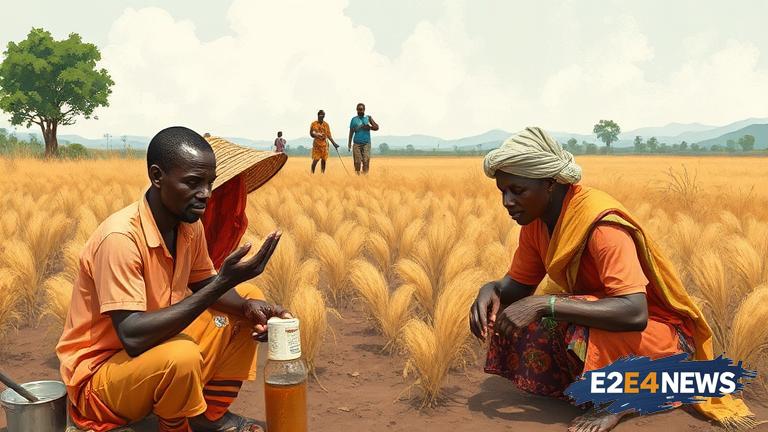In a groundbreaking study conducted in Ghana, researchers have uncovered the significant impact of social networks on farmers’ ability to weather droughts. The study, which focused on the agricultural sector, found that farmers who were part of strong social networks were better equipped to handle the challenges posed by drought. These networks, which included relationships with other farmers, community leaders, and extension agents, provided vital support and information that enabled farmers to make informed decisions about their crops and livelihoods. The research highlighted the importance of social capital in building resilience among farming communities, particularly in the face of climate change. By leveraging their social networks, farmers were able to access critical resources, such as credit, labor, and technology, which helped them to adapt to drought conditions. The study also revealed that social networks played a key role in disseminating information about drought-resistant crop varieties, conservation agriculture, and other climate-smart practices. Furthermore, the research showed that farmers who were part of social networks were more likely to adopt innovative technologies and practices, such as irrigation systems and soil conservation methods. The study’s findings have significant implications for agricultural policy and development programs in Ghana and beyond. By recognizing the importance of social networks in building resilience among farming communities, policymakers and practitioners can design more effective interventions that support farmers in their efforts to adapt to climate change. The research also underscores the need for investments in social capital, including programs that promote social cohesion, trust, and cooperation among farmers and other stakeholders. In addition, the study highlights the importance of integrating social network analysis into agricultural research and development initiatives. By doing so, researchers and practitioners can gain a deeper understanding of the complex relationships between social networks, climate change, and agricultural productivity. The study’s findings are particularly relevant in the context of Ghana, where agriculture is a critical sector that employs a significant proportion of the population. The country’s agricultural sector is highly vulnerable to climate change, and droughts have become increasingly frequent and severe in recent years. As a result, there is a growing need for innovative solutions that can help farmers adapt to these changing conditions. The study’s emphasis on social networks as a key factor in building resilience among farming communities offers a promising approach to addressing this challenge. Overall, the research provides valuable insights into the complex relationships between social networks, climate change, and agricultural productivity, and highlights the need for a more nuanced understanding of the social and institutional factors that shape farmers’ ability to adapt to drought. The study’s findings have significant implications for agricultural policy and development programs, and underscore the importance of investing in social capital and social network analysis. By leveraging the power of social networks, farmers in Ghana and beyond can build their resilience to drought and other climate-related stresses, and improve their overall well-being and productivity. The study’s results are a testament to the importance of interdisciplinary research that combines insights from sociology, anthropology, and agricultural science. By working together, researchers and practitioners can develop more effective solutions to the complex challenges facing farming communities in the era of climate change. The research also highlights the need for greater recognition of the critical role that social networks play in supporting farmers’ livelihoods and well-being. By acknowledging the importance of social capital, policymakers and practitioners can design more effective programs that support farmers in their efforts to adapt to climate change. In conclusion, the study provides a compelling case for the importance of social networks in building resilience among farming communities, and highlights the need for a more nuanced understanding of the complex relationships between social networks, climate change, and agricultural productivity.
